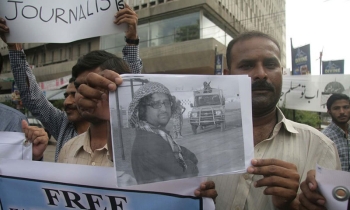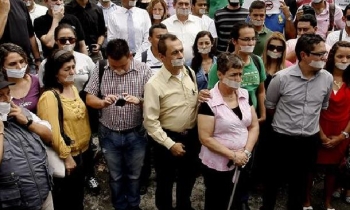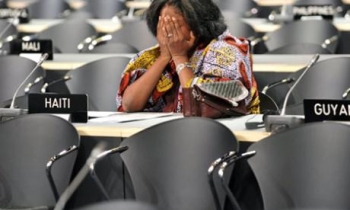Hearst-Argyle Television senior vp for news Fred Young has a message for the rising chorus of officials telling TV broadcasters to move, and soon, off the spectrum they’ve used for decades: Look at the example of WDSU in New Orleans, and think about whether it’s smart to take away TV signals that are a lifeline for many people.
Beginning two days before Hurricane Katrina laid waste to the city, the Hearst-Argyle NBC affiliate preempted all normal programming with bulletins about the approaching storm and how to survive it. "There were no car races, there were no sitcoms, no movies, no golf–nothing associated with television in the traditional sense," Young told federal regulators on Sept. 15. Even after rising waters knocked WDSU off the air, staff fed a Web site that garnered 25 million page hits over several days. "The role that we play may not be fully understood by those who advocate premature return of the analog spectrum," Young said.
"Premature" is not the word on the minds of some, notwithstanding Young’s presentation to the Federal Communications Commission, which met in Atlanta to mull lessons of Katrina. As the agency decided to set up its own bureau for public safety and homeland security, officials elsewhere were lining up to point at communications failures afflicting emergency workers responding to Katrina. A solution has long been mooted, but never enacted: Finish TV’s move onto the digital spectrum and use part of the vacated analog spectrum for emergency workers. It all had a frustratingly familiar ring for Thomas Kean, who headed the 9/11 Commission that concluded communications shortfalls hampered rescue operations during the attacks in 2001.
"It is a scandal that four years after 9/11 we have not yet set aside spectrum" to ensure reliable communications during attacks or disasters, Kean told a Washington news conference on Sept. 14. "We cannot go through this again. If Congress does not act, people will die."
Some in Congress appear ready. "What level of crisis must we endure before we act?" said Sen. John McCain (R-Ariz.) from the Senate floor on Sept. 13. Some congressional leaders have proposed ending analog TV broadcasts by 2009; McCain called for a switch by Jan. 1, 2007. He’ll get support from the likes of Kean, who called 2009 "totally unacceptable."
Broadcasters are loath to publicly oppose the notion of hustling spectrum over to first responders. But they worry about losing chunks of their audience–the 21 million households who rely on over-the-air reception and would need new equipment to receive digital signals. Many of those people are not prosperous, like those stuck in New Orleans during Katrina. "We make the point that broadcasters play a critical role in times of peril," said Dennis Wharton, spokesman for the National Association of Broadcasters. "Broadcasters are undoubtedly a lifeline service."
That notion should soon get a test before Congress, where lawmakers deluged with Katrina legislation have given themselves an extra month, until mid-October, for key budget votes. Legislation could set a date for the digital TV conversion so budgeteers can count on the billions of dollars to be reaped by auctioning analog spectrum to high-tech companies. An early indication of lawmakers’ eagerness could come Sept. 22 when the Senate Commerce Committee gathers to consider communications lessons left by Katrina.









